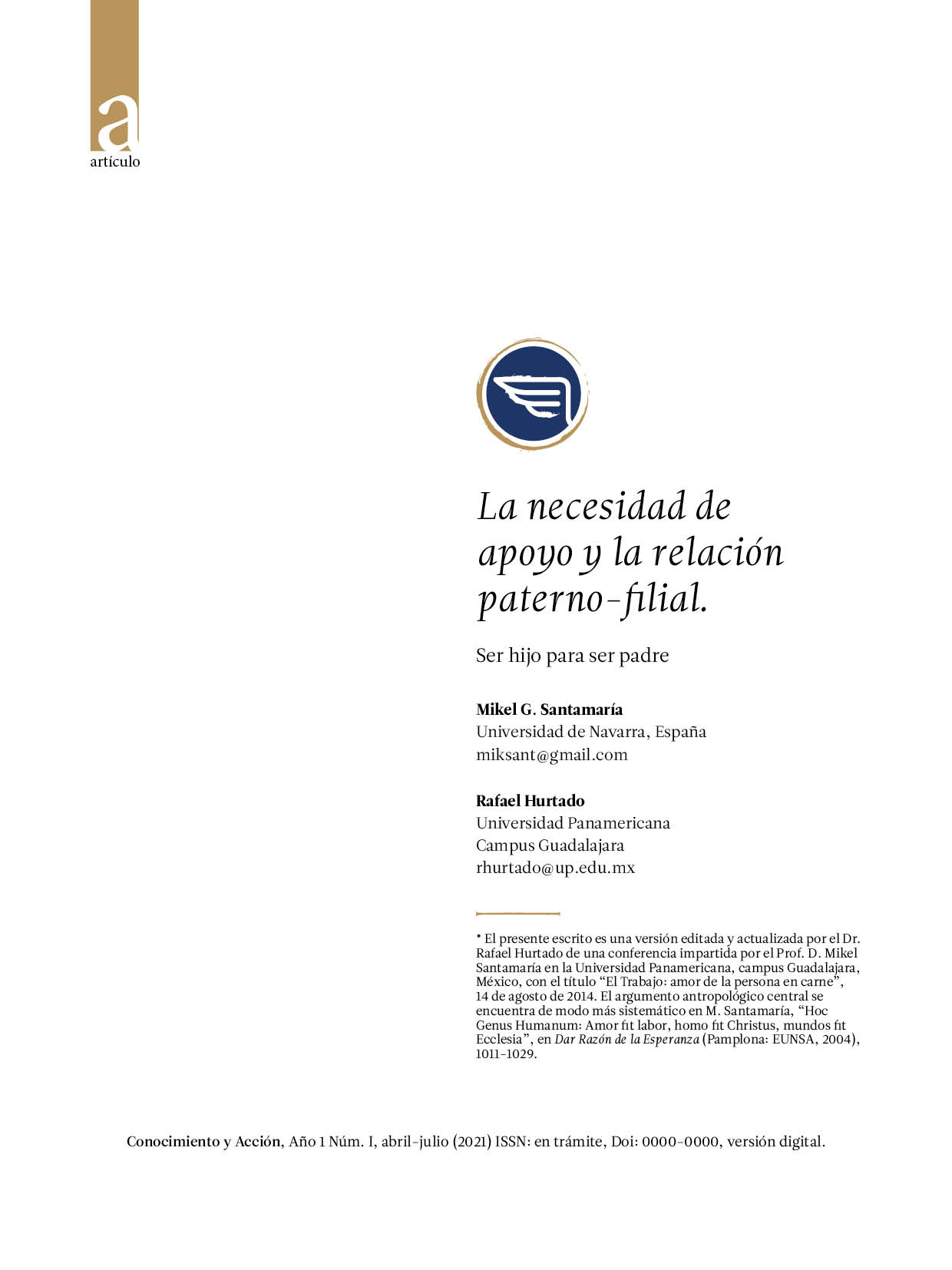
Publicado 2021-04-25 — Actualizado el 2021-10-01
Palabras clave
Cómo citar
Descargas
Resumen
En el presente artículo se explorará la necesidad imperante de todo ser humano por experimentar el amor de Dios a través del amor de su origen físico y espiritual, a saber, sus propios padres de familia. En la primera parte del análisis se desarrolla un breve marco teórico, partiendo de la experiencia de ser persona, que explica la relación entre la noción de amor y felicidad humanos. Posteriormente se establece la conexión indeleble entre la necesidad de experimentar el amor de Dios y corresponderlo, pasando por el reconocimiento excelso de la libertad. Amar y ser amado en la tierra, en ese sentido, pasa por el acto libre humano de aceptar la posibilidad de ser copartícipes de la procreación y educación de los hijos de Dios. Finalmente, se exalta el compromiso de toda sociedad por revalorar la función que ejercen los padres de familia en la construcción del “hogar global” de los seres humanos.
Abstract:
The following article will explore the human need to experience the love of God, through the love of those who are our physical and spiritual origin, that is, our parents. The first part of the analysis will stablish a theoretical framework, drawn from our human experience, that explains the relationship between the notion of human love and happiness. Secondly, the connection between the need to experience God’s love in order to reciprocate it through freedom will be brought to our discussion. In that sense, to love and being loved on earth becomes a matter of acknowledging the true nature of human freedom up to the point of, willingly, co-participating in God’s plan to become parents, that is: to procreate and educate the children of God. Finally, the commitment of every society to rethink and value the function of parents to build society from the inside, the “global home” for human beings, will be exalted.
Key Words: Love, Family, Parenthood, Freedom, Happiness.
Citas
- A. von Hildebrand, El privilegio de ser mujer (Pamplona: EUNSA, 2019).
- Francisco (Fratelli Tutti, 2020), 55.
- M. Santamaría, Saber amar con el cuerpo (Madrid: Palabra, 1996).
- __________, “Hoc Genus Humanum: Amor fit labor, homo fit Christus, mundos fit Ecclesia”, en Dar Razón de la Esperanza (Pamplona: EUNSA, 2004), 1011-1029.
- M. Santamaría, Un bicho que busca a Dios (Madrid: Grafite, 2003).
- M. Santamaría, Qué y quiénes somos. Amor de carne y divino (Málaga: Sekotia, 2012).
- A. Marcos & M. Bertolaso, “What is a home? On the intrinsic nature of a home”, en A. Argandoña (ed.), The Home. Multidisciplinary Reflection (Cheltenham: Elgar, 2018).
- O. Spengler, The Decline of the West (U.K.: Oxford University Press, 1991).
- R. Hurtado, La paternidad en el pensamiento de Karol Wojtyla (Pamplona: EUNSA, 2011).
- R. Hurtado, Reflexiones sobre el trabajo en el hogar y la vida familiar (Pamplona: EUNSA, 2014).
- R. Hurtado y R. García, “What we can learn from the from the series 13 reasons why”; acceso al 01 de Agosto de 2019, https://www.mercatornet.com/popcorn/view/what-we-can-learn-from-the-series-13-reasons-why/20553.
- R. Hurtado, A stand for the home. Reflections on the natural family and domestic life (Pamplona: EUNSA, Pamplona, 2019).

